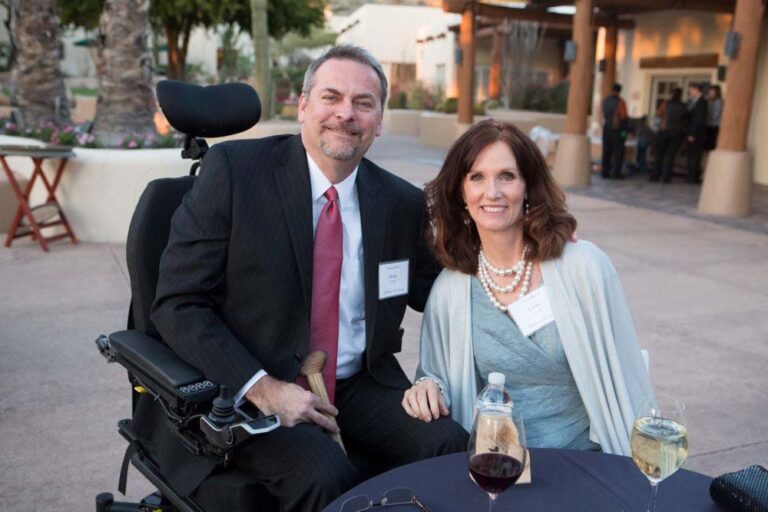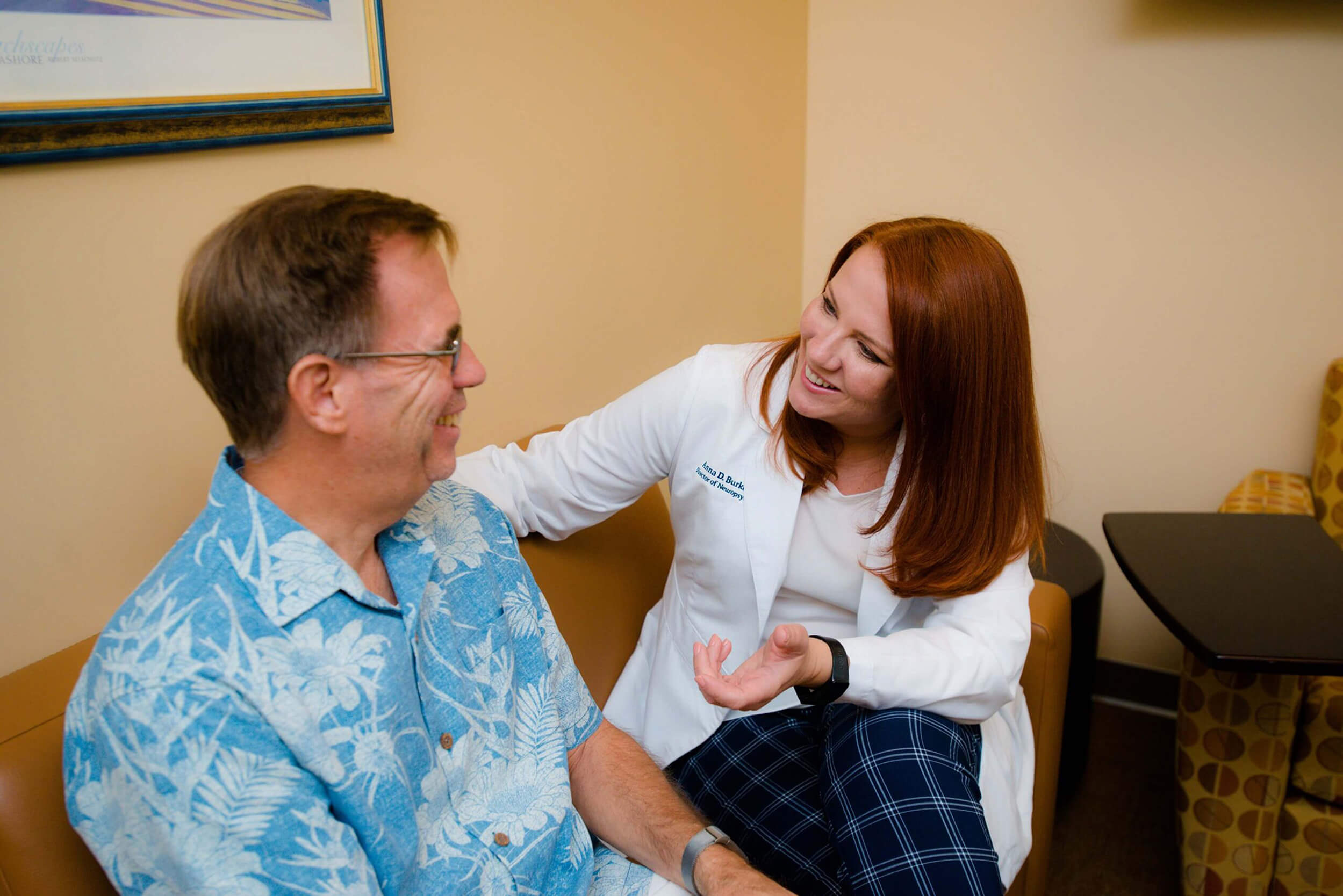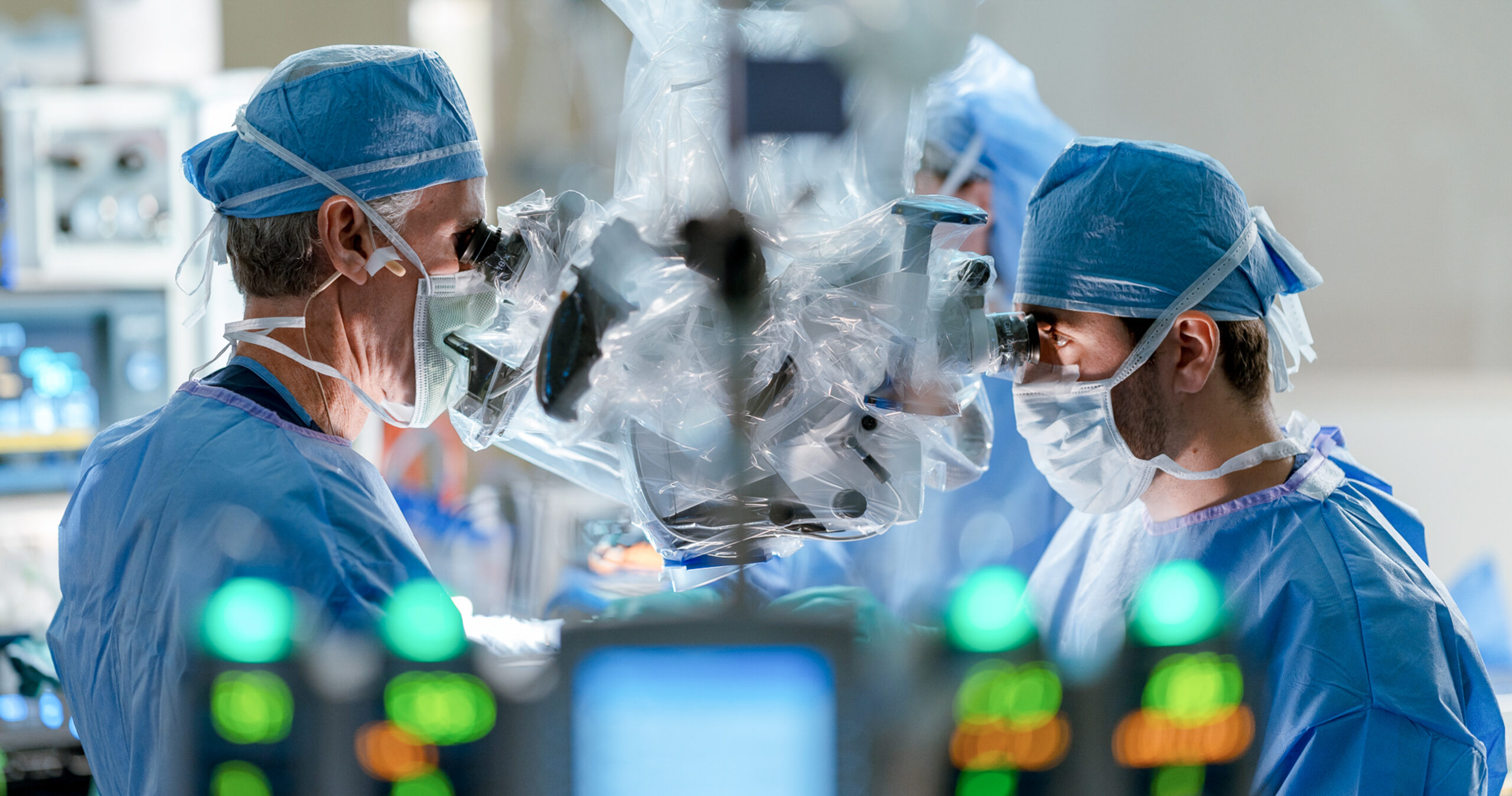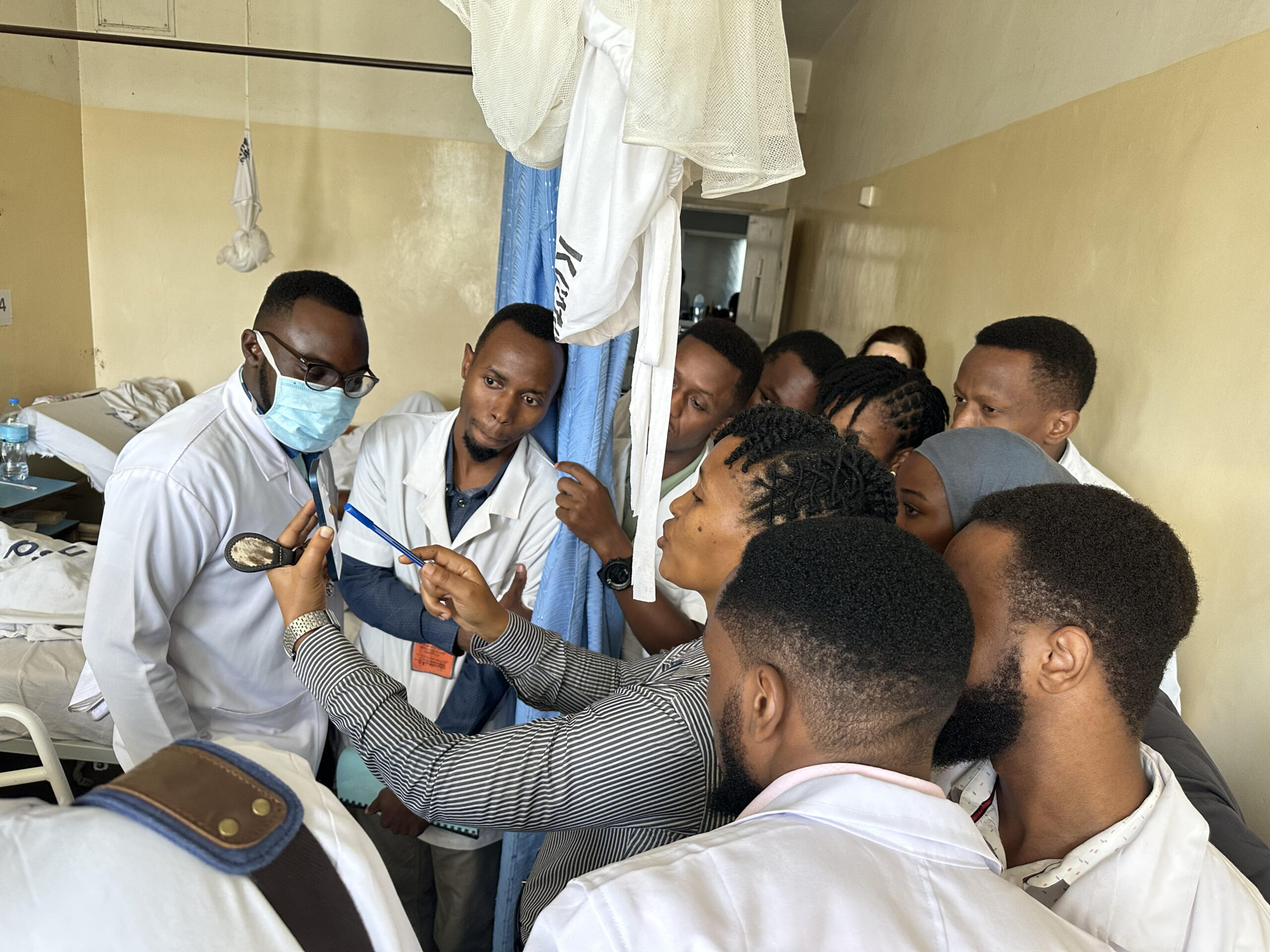Gregory W. Fulton ALS & Neuromuscular Disease Center
Donate to ALS Research and Treatment
Amyotrophic lateral sclerosis (ALS), also known as Lou Gehrig’s disease, is a rapidly progressing neurodegenerative disease that causes the deterioration and death of motor neurons.
A diagnosis of ALS can be frightening and devastating for patients and their loved ones. As the disease progresses, patients’ muscles begin to weaken and waste away, eventually robbing them of the ability to move, talk, swallow, and even breathe on their own.
You Accelerate the Discovery of New Treatments
As an ALS Association Certified Treatment Center of Excellence, physicians and scientists in the Fulton ALS Center collaborate to deliver frontline therapies to patients and advance the next generation of therapies. The following are some of the most recent advancements in treatment your support has made possible.
- The Fulton ALS Center played a critical role in clinical trials that led to the FDA approval of the drug Tofersen. This is the first treatment for a genetic form of ALS and one of the few treatments available to slow disease progression.
- Barrow physician-scientists utilized de-identified U.S. Medicare data to discover links between existing medications and a lower risk of ALS. In preclinical models, Lovastatin, a drug used to lower cholesterol, showed promise in preserving motor neurons and delaying symptom onset.
- The Fulton ALS Center administered the first-ever gene therapy doses to an ALS patient in Barrow’s history. The treatment involves inserting a gene into motor neurons that produces a growth factor, which will hopefully slow disease progression.
You Contribute to Increased Access to ALS Therapies
Although there is no cure for ALS, patients still want to fight the disease in any way they can. This includes participating in clinical research trials. Unfortunately, less than 50% of ALS patients qualify for traditional clinical trials based on rigid participation criteria.
Thanks to the generosity of Autumn and Bobby Henderson, Barrow launched the Henderson-Liebman ALS Expanded Access Program to allow more patients with ALS to participate in trials testing promising new drugs. In its first year, the program provided 20 patients with access to experimental medications that would normally not be available to them through traditional clinical trials.
Your Support, Their Stories
Grateful Barrow patients share how the ALS team helped empower them while fighting the disease.

“Own your life and have fun. I would say that not just for people who have ALS, but for everyone.”
[Name Title]
Doug was diagnosed with amyotrophic lateral sclerosis (ALS), which causes degeneration of the nerve cells responsible for controlling voluntary muscle movements.

You Advance Innovative Research
Clinical ALS Biomarkers
Predicting Falls in ALS
Gene Mutations in ALS
Protein Dysfunction in ALS
Linking Genetics in ALS and FTD
Discover More Programs
At Barrow Neurological Foundation, your donation is crucial in supporting three key areas: advanced patient care, curative research, and education for the next generation of neuroscientists. Learn more about how your donation impacts each of the areas we treat.
Help Barrow achieve its mission of transforming Alzheimer’s from a devastating diagnosis to a manageable, chronic condition.
Support Barrow scientists in developing lifesaving treatments for aneurysm and AVM patients.
Help Barrow provide patients from all walks of life with exceptional concussion and TBI research, treatment and care
Help us improve access to neurological care in the developing world through world-class education and training.
Support the Ivy Brain Tumor Center’s mission to find a cure for brain cancer.





